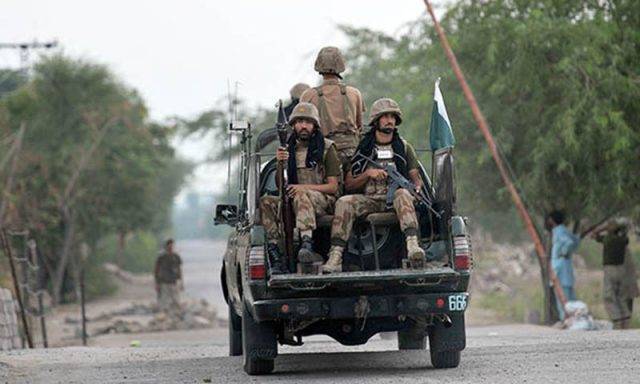
ISLAMABAD: The government is close to finalising its strategy to deal with Jamiat-e-Ulema Islam-Fazl’s (JUI-F) Azadi March, and is even considering the option of calling the armed forces to maintain security in the federal capital, reported Express Tribune.
JUI-F chief Fazlur Rehman would march towards the capital on October 31 in a bid to topple the Pakistan Tehreek-e-Insaf (PTI) government. Fazl has accused the ruling party of coming into power through rigged elections.
All major political parties, including Pakistan Muslim League-Nawaz (PML-N), Pakistan People’s Party (PPP), Awami National Party (ANP) and Pashtunkhwa Milli Awami Party (PkMAP), have announced their support for the long march.
If talks between the government and Fazl fail, then the government might call the army under Article 245 of the Constitution, according to sources.
They said that a meeting held in Prime Minister’s (PM) Imran Khan residence in Bani Gala on the prevailing law and order situation discussed different strategies to deal with the marchers.
The participants of the meeting agreed that peaceful protest was the right of every citizen, but no one would be allowed to disturb the law and order situation in the federal capital. They also said that the state is responsible for protecting the lives and properties of the general public.
In addition, the meeting also discussed security arrangements for sensitive government buildings and foreign embassies located in the red zone of the city.
The meeting decided that the government would initiate a dialogue with all opposition parties, including JUI-F, while saying that the army would be called in to protect important buildings in case the talks failed. The final decision to call in troops would be taken by the Ministry of Interior.
It merits mention here that during Pakistan Tehreek-e-Insaf’s (PTI) dharna of 2014 and Tehreek-e-Labbaik Pakistan’s (TLP) sit-in held in November 2017, the army was called in to maintain security of the federal capital. According to Article 245, acts of armed forces cannot be challenged in court when they are called in to support the civil administration.
Replying to a query in this connection, Special Assistant to PM on Information Dr Firdous Ashiq Awan said the government’s priority is to deal with this issue through talks. “However, if there is a law and order situation, the government would take a decision according to law to protect the lives and properties of people,” she said.
JUI-F chief Fazlur Rehman would march towards the capital on October 31 in a bid to topple the Pakistan Tehreek-e-Insaf (PTI) government. Fazl has accused the ruling party of coming into power through rigged elections.
All major political parties, including Pakistan Muslim League-Nawaz (PML-N), Pakistan People’s Party (PPP), Awami National Party (ANP) and Pashtunkhwa Milli Awami Party (PkMAP), have announced their support for the long march.
If talks between the government and Fazl fail, then the government might call the army under Article 245 of the Constitution, according to sources.
They said that a meeting held in Prime Minister’s (PM) Imran Khan residence in Bani Gala on the prevailing law and order situation discussed different strategies to deal with the marchers.
The participants of the meeting agreed that peaceful protest was the right of every citizen, but no one would be allowed to disturb the law and order situation in the federal capital. They also said that the state is responsible for protecting the lives and properties of the general public.
In addition, the meeting also discussed security arrangements for sensitive government buildings and foreign embassies located in the red zone of the city.
The meeting decided that the government would initiate a dialogue with all opposition parties, including JUI-F, while saying that the army would be called in to protect important buildings in case the talks failed. The final decision to call in troops would be taken by the Ministry of Interior.
It merits mention here that during Pakistan Tehreek-e-Insaf’s (PTI) dharna of 2014 and Tehreek-e-Labbaik Pakistan’s (TLP) sit-in held in November 2017, the army was called in to maintain security of the federal capital. According to Article 245, acts of armed forces cannot be challenged in court when they are called in to support the civil administration.
Replying to a query in this connection, Special Assistant to PM on Information Dr Firdous Ashiq Awan said the government’s priority is to deal with this issue through talks. “However, if there is a law and order situation, the government would take a decision according to law to protect the lives and properties of people,” she said.
